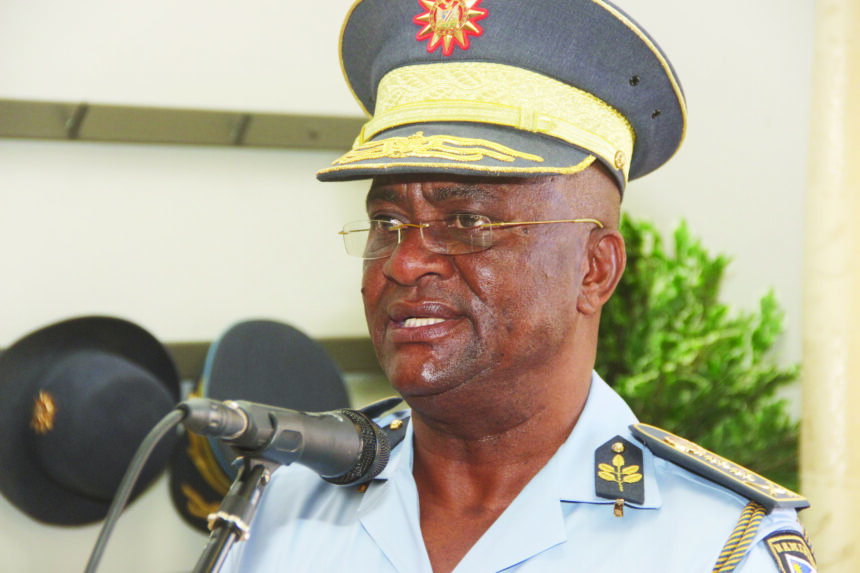An article in The Namibian newspaper of Thursday, 21 November, titled ‘Namibia-Germany genocide negotiations reached final stage’, has reference.
In mid-2015, the German foreign ministry unequivocally admitted that the war his country waged against the Ovaherero and the Nama communities between 1904 and 1908 in German South West Africa, now Namibia, was a genocide.
Since then, bilateral negotiations between the German and Namibian governments have taken place to find ways to come to terms with this horrific chapter of genocide.
In mid-May 2021, the special envoys of Germany and Namibia initialled a joint declaration.
Considering this declaration, it unsurprisingly had many flaws.
It avoided a far-reaching precedence. The genocide was recognised in moral and political terms, but not in legal terms. Hence, reparations were not acknowledged as a consequence of the admission.
Essentially, one cannot admit the degree of atrocities committed with their far-reaching demographic, material and traumatic consequences for the descendants of the survivors without direct open talks, and without seeking genuine reconciliation with these communities.
The joint declaration avoided the term «reparations».
It allocated a total amount of 1.05 billion euros (US$1.18 billion) over a period of 30 years for development projects in Namibian regions inhabited by the descendants of the genocide victims.
It is ironically the same amount as the German development cooperation has spent in the 34 years since Namibia attained her independence.
Another 50 million euros (US$56 million) is dedicated to the projects on reconciliation, remembrance, researchers and education over the same period.
Nevertheless, the declaration stresses that “these amounts… settle all financial aspects of the issues relating to the past genocide”.
For the descendants of the 1904-1908 genocide victims, such a meagre recognition is a pittance and insult.
Germany has been paying reparations to Holocaust survivors and their heirs since 1952, worth billions of euros.
The burning questions are, why does the German government treat the Holocaust differently from the genocide in Namibia?
Is race the determining factor?
Where is the equity in the reparations?
During the debate in the National Assembly on the matter at hand in late September 2021, numerous speakers from a broad political spectrum expressed concerns, criticism and rejections regarding the shortcomings in the joint declaration, condemning it as insufficient.
Shortly thereafter, the government announced that taking into consideration the contributions made, it would seek further negotiations with the German government.
Once an improved agreement was ratified, members of Parliament were assured that it would be submitted to the Namibian Parliament for ratification.
Has this path been abandoned?
The conundrum
The initial negotiation process disregarded international participation rights based both on treaties and customary international law.
Critics bemoaned, among other things, the fact that both governments were only “seeking forgiveness without listening to descendants of the genocide victims”, and with no reference to the return of land to the dispossessed communities as part of restitutive justice.
Indeed, Article 18 of the United Nations Declaration on the Rights of Indigenous Peoples (UNDRIP) states that “Indigenous people have the right to participate in decision-making in matters which would affect their rights, through representatives chosen by themselves in accordance with their own procedures, as well as to maintain and develop their own indigenous decision-making institutions”.
Even if renegotiations would be a viable option, the major challenge lies in the inclusion of the communities in Namibia and the diaspora, who continue to be most affected by the 1904-1908 genocide.
This points to the limitations of government-to-government negotiations as long as they do not adequately recognise those who mainly bear the trauma and consequences of the genocide.
Status of negotiations
Without the descendants of the genocide survivors substantially involved and willing to reconcile, this remains as patronising and paternalistic as the Apartheid colonialism was.
There is truly no way to genuine reconciliation.
Importantly, the Okandjoze Chiefs Assembly, consisting of 10 recognised traditional chiefs representing the Ovaherero and the Nama communities, since the tenure of the late Dr Zed Ngavirue as government special envoy, has never updated on developments, and remains oblivious to the current development, as reported last week “that the negotiations [have] reached a final stage”, nor have they been duly informed or consulted by the government at any stage about the current status at all.
Their strenuous efforts to find agreeable solutions due to the impasse with the government on the ongoing negotiations have proven futile.
But the government has decided to go it alone, meaning that whatever agreement will be arrived at is outside the scope of the rights of indigenous peoples, as defined by the United Nations.
These affected communities have suffered from historic injustices as a result of, inter alia, their colonisation and genocide, their incarceration in concentration camps, and the dispossession of their land, territories and resources.
Thus, keeping them away from exercising their rights in accordance with their own needs and interests is undoubtedly out of place. They deserve to be treated with compassion, respect and dignity as citizens. In fact, they are entitled to be an integral part of the negotiations, or at the forefront of negotiations, and prompt redress for the harm and neglect they and their ancestors have suffered, and their descendants will continue to suffer.
This pain will forever be felt in the blood, heart and minds of those living and their descendants.
The persistent question is, therefore, why would the national government overlook the affected communities who, at this point – nearing the signing of the agreement – do not have a firm idea of the reparations due to them?
And what are the consequences?
Namibia, how and where are we heading to with the ongoing genocide negotiations?
*Maj. Gen. (Rtd) J. B. Tjivikua is a descendant of victims of the 1904-1908 genocide.



